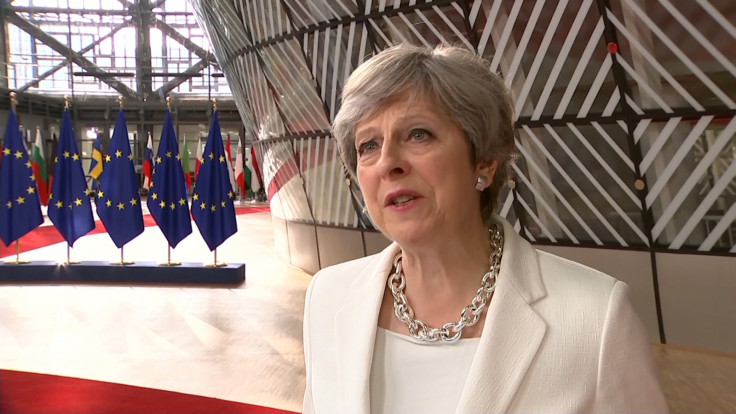Theresa May's post-election relaunch saw the PM acknowledge her own weakness
Wounded Conservative premier pleaded with Labour and the Liberal Democrats to work with her.
Theresa May's post-general election relaunch saw the prime minister appeal to Labour and other opposition parties, as she subtly acknowledged her own weakened and precarious position at the top of British politics on Tuesday 11 July.
The Conservative premier spoke at the launch of the Matthew Taylor report into the so called "gig economy" in central London.
The 116-page document called for all work in the UK to be "fair and decent", with May appealing to Jeremy Corbyn, the SNP and the Liberal Democrats to "contribute" to the debate.
"When I commissioned this report, I led a majority government in the House of Commons and the reality I now face as prime minister is rather different," she said.
"In this new context, it will be even more important to make the case for our policies and values and win the battle of ideas both in parliament as well as in the country.
"So I say to the other parties in the House of Commons: read this report, engage with the difficult issues it raises, come forward with your own views and ideas about how we can tackle these challenges together as a country.
"We may not agree on everything, but through debate and discussions, the hallmarks of our parliamentary democracy, ideas can be clarified and improve and a better way forward found."
May, who took just two questions from the media, also stressed that her "defining beliefs" on reforming Britain had not changed since the Tories lost their majority in the Commons at the 8 June vote. "In everything we do, we will act with an unshakeable sense of purpose to build the better, fairer Britain which we all want to see," she added.
The prime minister's speech comes just days after it was reported that Conservative MP Andrew Mitchell, an ally of Brexit Secretary David Davis, had described May's premiership as "dead in the water" at a private dinner function.
Mitchell later claimed the allegations were "overheated", with Justice Secretary David Lidington telling the BBC's Andrew Marr show that stories around May's political future were a result of too much Prosecco in the sun.
The Confederation of British Industry (CBI), meanwhile, said that the Taylor review "rightly" recognises that flexibility is a "key strength" of the UK economy.

"Spreading good practice, not just focussing on new laws, is something the CBI has long supported given the link between good employee relations and higher productivity, which is the only sustainable route to rising wages and better living standards.
"There is much for firms to like, as well as some valid challenges, in the seven steps the Taylor team has outlined.
"A number of proposals in the report will be of significant concern to businesses, however. Changes to the application of the minimum wage, rewriting employment status tests and altering agency worker rules could have unintended consequences that are negative for individuals, as well as affecting firms' ability to create new jobs.
"The Government will need to consider these aspects extremely carefully, alongside proposals for any future tax changes, to ensure our labour market retains the flexibility and entrepreneurship that has made it the mainstay of the UK economy."
© Copyright IBTimes 2024. All rights reserved.






